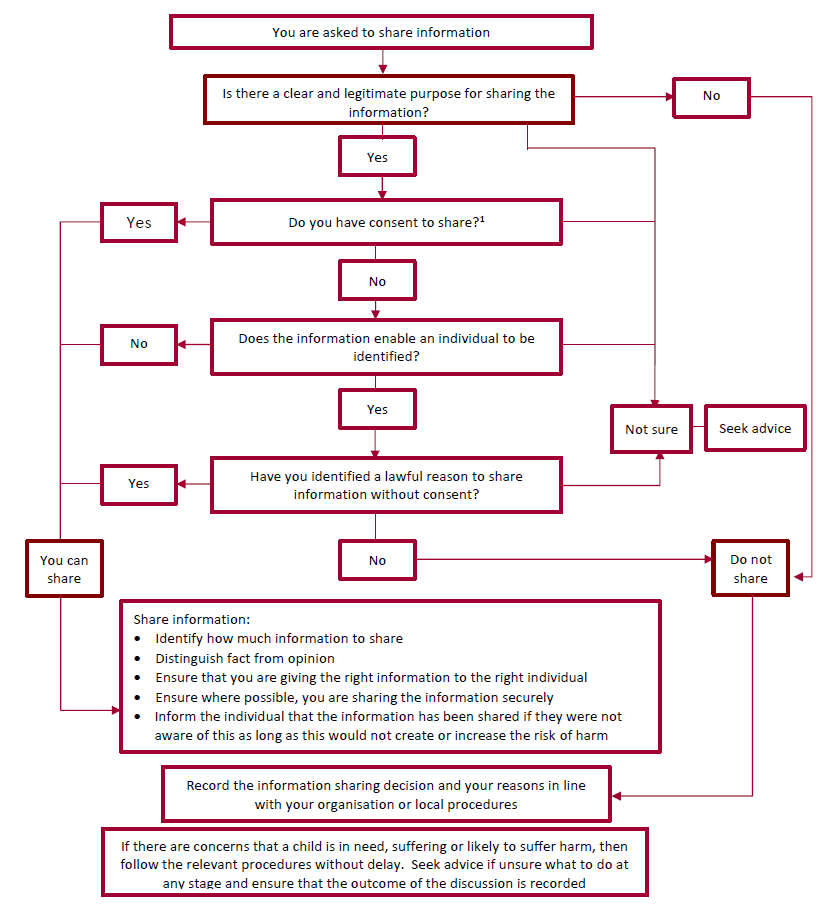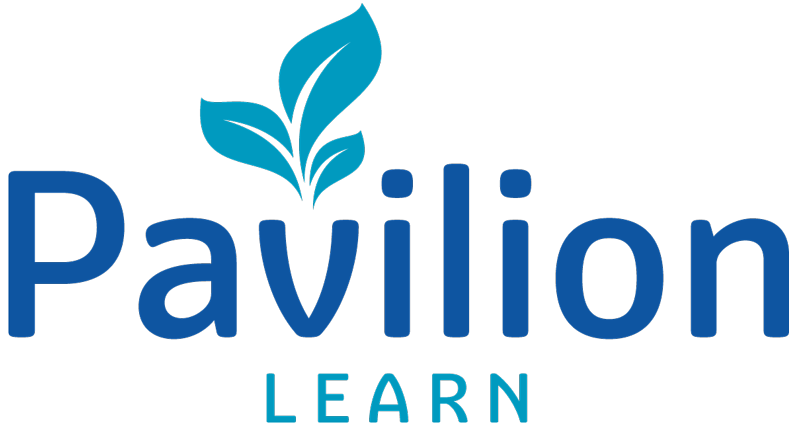Working with and sharing information with other services
Consultation is the act of sharing information to obtain the perspective of another practitioner. It is not a referral to another service unless, during the consultation, it is decided that a referral would be the best course of action. Consultation may take different forms, from a telephone call to a series of meetings between two or more practitioners. Consultation is best undertaken by speaking to each other and not just by email.
Whenever consultation takes place, it is important that practitioners follow the principles of information sharing, parental consent and confidentiality. If the consultation is internal (between practitioners in the same organisation) practitioners should ensure that they follow their own agency’s procedures for information sharing.
If the consultation is external (between practitioners from different organisations) you should use the flowchart (below) to decide whether information should be shared. In most cases, unless the child would be at significant risk, the child and their family should give consent to the consultation taking place and where appropriate, be given the opportunity to be involved.
Principles of consultation:
- Should be open to all agencies who work with children, young people and their families
- Should take place when there is a clear benefit to the child or young person and their family
- An important tool in helping agencies and practitioners work together to achieve the best possible outcomes for children and young people
- A two-way process that demonstrates an acknowledgement of different but equally valid knowledge and expertise
- Be able to explain to the family why you feel it would be helpful to consult with other agencies. Families should whenever possible be aware of, give consent to, and be involved in consultations and also be informed of outcomes and decisions taken as a result
- Information should be shared in the spirit of openness, transparency and honesty between practitioners, the child and their family; however it is important that you have due regard for the principles of confidentiality and parental consent
- All consultations should be recorded to ensure clarity and allow you to evidence any decisions that have been made
A Team Around the Family approach to involve agencies working alongside children and families provides an opportunity for practitioners to share information and consult with each other.
“Information can be shared legally without consent, if a practitioner is unable to, cannot be reasonably expected to gain consent from the individual, or if to gain consent could place a child at risk.” Information Sharing Guidance July 2018
Those who know the family through working with them will be invited to Child in Need Meetings, Child Protection Conferences and Strategy Discussions (where necessary).
Practitioners invited to these meetings should be identifying support and services that their agency can provide for the child and family to recommend at the meeting and if they are unable to attend, send a written report and a representative who can discuss what support the agency can give.
Flowchart of when and how to share information

[1] Consent must be unambiguous, freely given and may be withdrawn at any time
Review your knowledge
Activity Summary
0 of 5 Questions completed
Questions:
Information
You have already completed the activity before. Hence you can not start it again.
Activity is loading…
You must sign in or sign up to start the activity.
You must first complete the following:
Results
Results
Time has elapsed
Categories
- Not categorized 0%
- 1
- 2
- 3
- 4
- 5
- Current
- Review
- Answered
- Correct
- Incorrect
-
Question 1 of 5
1. Question
- Which part of this module did you find the most relevant to you and your work? Write a few lines about why this is so.
-
This response will be awarded full points automatically, but it will be reviewed and possibly adjusted after submission.
-
Question 2 of 5
2. Question
2. Why is an understanding of your personal values important in developing your frontline leadership?
-
This response will be awarded full points automatically, but it will be reviewed and possibly adjusted after submission.
-
-
Question 3 of 5
3. Question
3. Can you describe two aspects of your work that are strongly influenced by values that you have identified that are important to you?
-
This response will be awarded full points automatically, but it will be reviewed and possibly adjusted after submission.
-
-
Question 4 of 5
4. Question
4. Are there any personal values that you find are easy to stand up for? Are there any that you find difficult to stand up for?
-
This response will be awarded full points automatically, but it will be reviewed and possibly adjusted after submission.
-
-
Question 5 of 5
5. Question
5. Now that you have a clear idea of your own values, how would you go about helping your colleagues to do the same?
-
This response will be awarded full points automatically, but it will be reviewed and possibly adjusted after submission.
-
